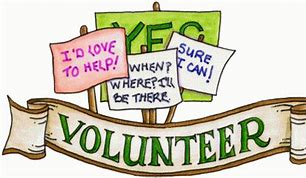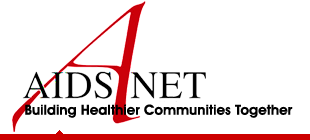Who We Are
- What We Do
AIDSNET is charged with assisting the growing population of people with HIV. This is achieved through the processes of assessing, planning, and allocating government funds in order to guarantee the quality of service provided in the counties of Berks, Carbon, Lehigh, Monroe, Northampton and Schuylkill. more
501c(3) Designation
AIDSNET is designated by the IRS as a non-profit 501c(3) organization and is based in Bethlehem, Pennsylvania.

Mission Statement
AIDSNET builds healthier communities by planning and funding HIV care and prevention services.
Download the PDF version of AIDSNET's Bylaws.

AIDSNET History
AIDSNET traces its history to the early days of the epidemic. By the mid-1980's, it was evident that the community's response to AIDS would require strong leadership. However, the newness of the epidemic had not allowed for the development of a comprehensive approach by the local agencies. Limited information about the basic nature of AIDS, as well as a lack of resources to help those infected, resulted in an inadequate public health response. This fragmented response may have served to meet immediate needs, but it was clear that a more unified approach was needed. more
History of HIV
The history of HIV is filled with triumphs and failures; life and death. In the early years of the epidemic, AIDS was unknown and misunderstood, feared, untreatable and often fatal. Years down the line, a virus named HIV was discovered and linked to AIDS. That was the turning point in AIDS history. Read the full story at avert.org.
HIV FAQs

- Fever
- Headaches
- Night sweats
- Malaise (a vague feeling of body discomfort or uneasiness)
- Myalgia (a generalized, muscular ache or pain)
- Rash (eczema-like in appearance and usually distributed around the upper parts of the body and/or palms of the hands)
Other symptoms can include sore throat, mouth/esophageal sores, joint pain and swelling of the lymph glands. Most of these symptoms will resolve within a week to a month on average, while swollen lymph glands can persist in some for years. Read more at verywellhealth.com.
- If you have an STD, this strongly indicates that you may have put yourself at risk for HIV.
- Likewise, if you have HIV, this strongly indicates that you may have put yourself at risk for other STDs.
- If you already have HIV and you get another STD like gonorrhea or chlamydia, you are more infectious to others.
- If you already have HIV and you get another STD like herpes, syphilis or genital warts, those STDs can be more severe than what is normally seen.
To learn more about the biology behind this connection, visit CDC.gov. If you want to learn about the more than 20 diseases that can be transmitted sexually, also read this article at CDC.gov.
Donate
Current economic realities make performing the mandates of AIDSNET's
charter on a day-by-day basis even more challenging. As unemployment and
job growth remains stagnant, budgets within the Commonwealth of PA and the
Federal Government are receiving even more scrutiny due to reduced revenues from
taxes and fees. We are finding funding for programs that are vital to each
community regularly reviewed, challenged and often reduced, if not eliminated.
This is particularly true in the areas of prevention, awareness and education.
In order for AIDSNET to maintain acceptable
standards in these three areas and to assure our place in the community until
HIV is eliminated
we must look to the generosity of individuals within our community. Please
assist us in continuing the work already started by contributing to AIDSNET.
Your donations will allow us to address the needs of those already infected and
to strive to reduce the likelihood of others being infected in the future.
Thank you for considering a donation to AIDSNET. Your financial donation is tax deductible and it enables AIDSNET to continue providing services and education. You can make a difference with your donation. Here are eight ways you can donate to AIDSNET:

Mail a check or money order to AIDSNET at:
AIDSNET
31 South Commerce Way, Suite 400
Bethlehem, PA 18017-8992

Matching Gifts Programs
When a Matching Gifts Program is offered by your employer, and proof that we are a non-profit 501(c)(3) is required, please contact us and we will be happy to provide that information to your employer.

Your United Way Contribution
When you contribute to the United Way through your employer, you may select the charity you want the donation to go to.
Donation2Charity
By donating your unwanted car or boat to Donation2Charity, your donation will help raise money for AIDSNET.
eBay Giving Works
Highlight your listing with the eBay Giving Works charity ribbon. When your listing sells, eBay credits back a portion of seller fees. All donations are tax deductible.
PayPal Giving Fund
Donate with PayPal Giving Fund. 100% of your donation will go to AIDSNET.
Go Fund Me
Donate or create a fundraiser for AIDSNET.
Thank you for your kind support!
The official registration and financial information of AIDSNET may be obtained from the Pennsylvania Department of State by calling toll-free, within Pennsylvania, 1-800-732-0999. Registration does not imply endorsement.




